When people learn of my travels to Vienna, they typically want to hear about all the things they associate it with: the gilded neoclassical buildings, the opera, the horsedrawn carriages, Wienershnitzel, Sachertorte, and Mozart. But while all of that is indeed here, it is very marginal to my experience of the place. The centralmost 1st district - with its maze of white stone, processions of tourists, ticket peddlers dressed as historical figures, and endless shops selling fur coats and stockings to overcoiffed ladies - is a place I keep away from inasmuch as possible. The absurdly grandiose architecture of the famous Ringstrasse is something I look upon with fond irony, but it does not define the city for me. My experience here has always been that of an on-and-off resident, rather than that of a tourist, and "my" Vienna consists of real neighbourhoods, out of the way cafes, small parks frequented by locals, and other places you are unlikely to find in tourist guides. For me, these places are what makes Vienna special, what creates the captivating atmosphere that so draws me here. And yesterday I spent the day wandering through one of them, on my bike.
While many are no doubt familiar with the Prater - a large park that runs through the Southern part of Vienna and includes an amusement park, a stadium, various athletic facilities and horse trails running through wooded alleys - few venture beyond it into the tiny neighbourhood of Freudenau on the outskirts of town. On the map it does not look like much, and descriptions of it are not particularly inspiring: there is a golf course and a horseracing track, but otherwise it seems unremarkable. But the maps and guidebooks say nothing of the gravel trail that will take you through what can only be described as an enchanted forest, past a cluster of mysteriously abandoned mansions, ancient stables and ethereal-looking horses.
The horses are unexpected, because they really are in the middle of the woods, and not always contained within enclosures. They can be found wandering around untethered between the moss and ivy-covered tress, grazing serenely. I suppose so few people happen through this area, that no one bothers them.
The horses are not only beautiful, but tame and very sociable. You can pet them and feed carrots to them, which I sometimes find lying around.
I've been trying to understand what the horses are doing there and who they belong to, but there is never any human around to ask. I could be wrong, but I do not think that these particular animals are racehorses; the racehorses I've seen are not kept like this and don't behave like this either. A friend suggested that these are therapy horses for handicapped and emotionally disturbed children. Apparently Vienna has an equestrian therapy program, and this could be where the service animals are kept.
Riding on the gravel trail through Freudenau is a soothingly surreal experience. There is such a haunting sense of history, and I am nearly always the only person there. I can hear nothing but the sounds of overhanging tree branches creaking, ravens' wings flapping, horses hooves clip-clopping over dried leaves, and my own bicycle tires rolling over gravel.
Perhaps the uneven gravel, with its occasional ditches and root protrusions, explains why not many feel compelled to venture here. But Jacqueline handles it without a problem.
On the way back to civilisation, I am delighted to pass one of my favourite signs in Vienna. It's charming, because it suggests that the sign is for the cats themselves, rather than humans. "This way if you're a cat."
Of course it's only a sign for a cat shelter. But Katzenheim has a more romantic ring to it, and I choose to imagine it as a genteel home for wayward felines - no doubt with miniature Jugendstil furniture and catfood served in little crystal dishes.
Right before Freudenau connects back to the Prater, there is a small cafe where I like to go. With traditional outdoor cafes like these in Vienna you never know what to expect. Some will serve awful microwaved food and packaged supermarket sweets that they simply open and dump onto a plate. Others will serve homemade dishes prepared with local ingredients that are as delicious as anything you could order in the best Viennese restaurants. This one leans toward the latter and I am never disappointed with even the simplest food I order there.
I don't usually feel compelled to photograph food, but readers have been asking about this more than anything else! So here is a ridiculously stereotypical meal, photographed just for you: frankfurters and sturm.
Sturm is a sort of fermented young wine, made from the first grape harvest of the season. It is naturally fizzy and low in alcohol, and tastes somewhat like a grapey version of hard cider. There are loads of vinyards outside of Vienna that compete to make the best Sturm in celebration of Autumn, and it's typical to sample them from as many places as possible this time of the year.
And a Viennese Apfelstrudel: heavy on the apples (local and fresh, not canned or jellied!), tart and not sweet, and very light on the crust - which is thin like filo dough, only soft instead of crunchy. There are also raisins mixed in there with the apples, which I could personally do without - but the rest I love. It's hard to eat Apfelstrudel elsewhere after getting used to the version they make here.
It's difficult to explain my attachment to Vienna without discussing my personal background at length. But I hope these pictures help express what words fail to.
Vienna is a large, sprawling city and some of my favourite places are difficult to access without a bicycle. Cycling is truly the best way to travel off the beaten path and to visit all the places I love - on the road and off.
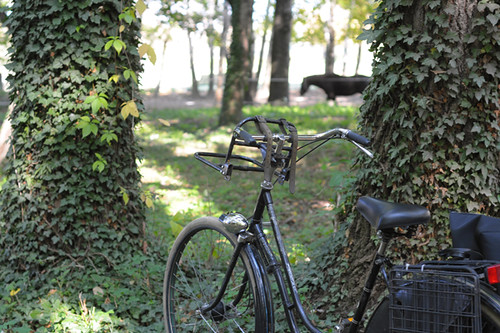
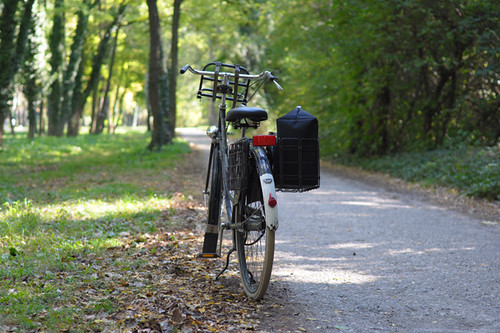
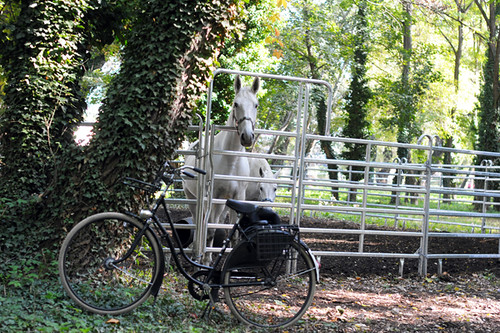
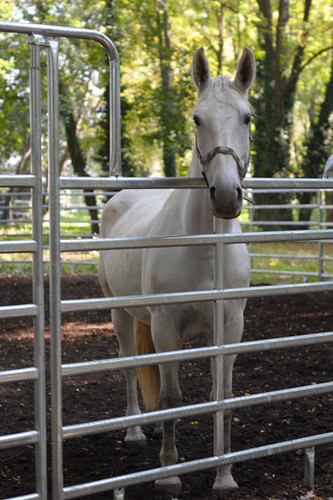
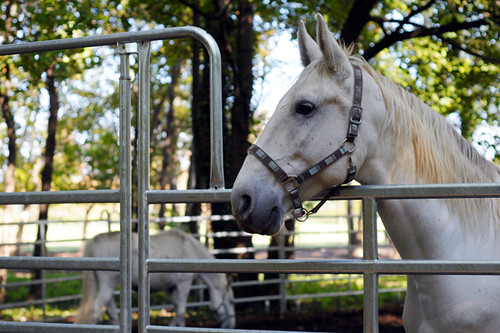
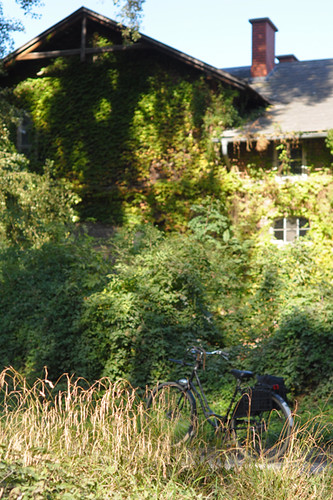
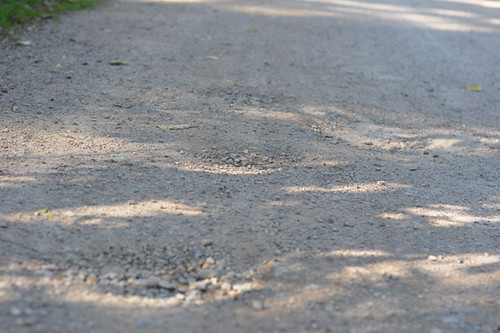
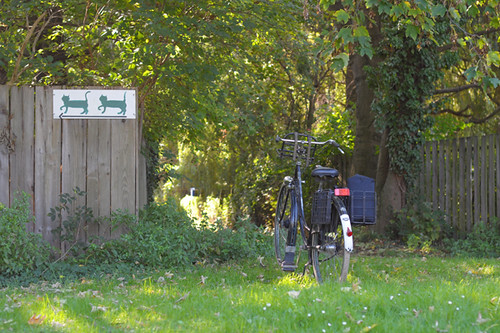
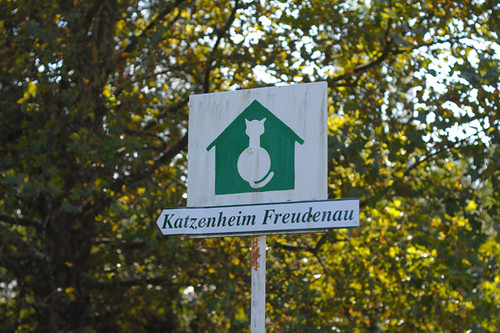
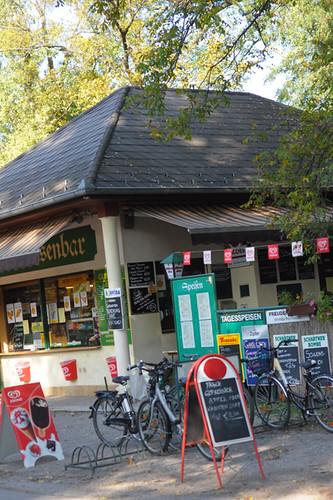
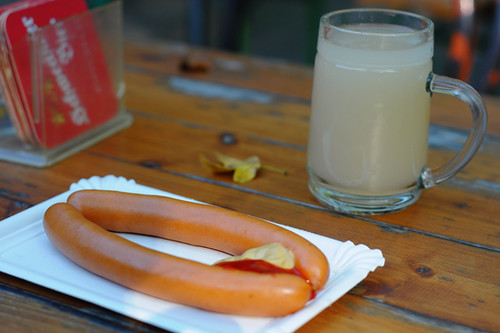
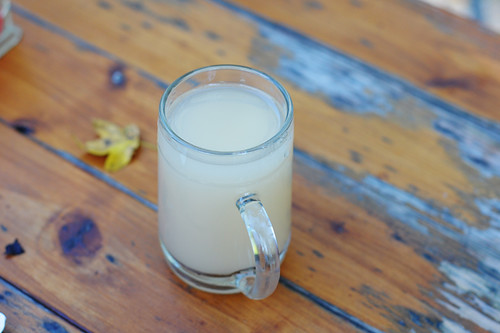
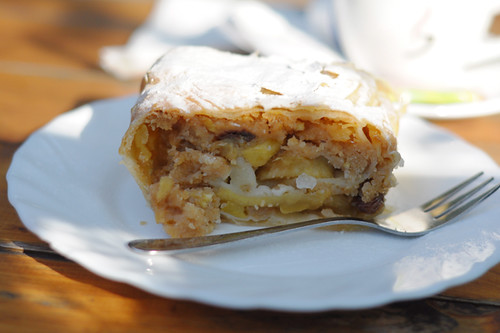
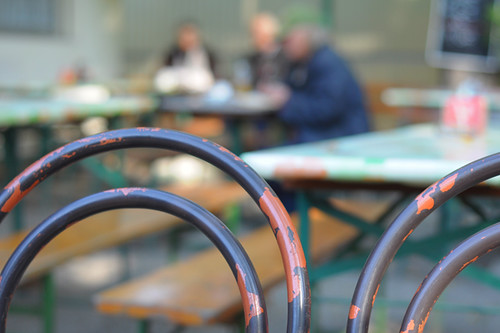
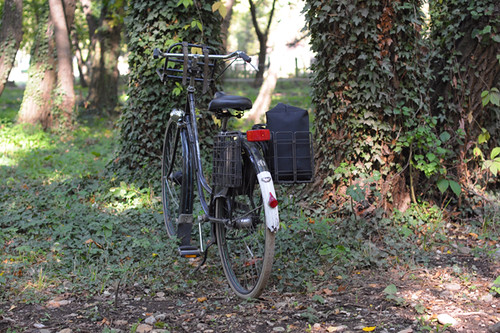





0 comments:
Post a Comment